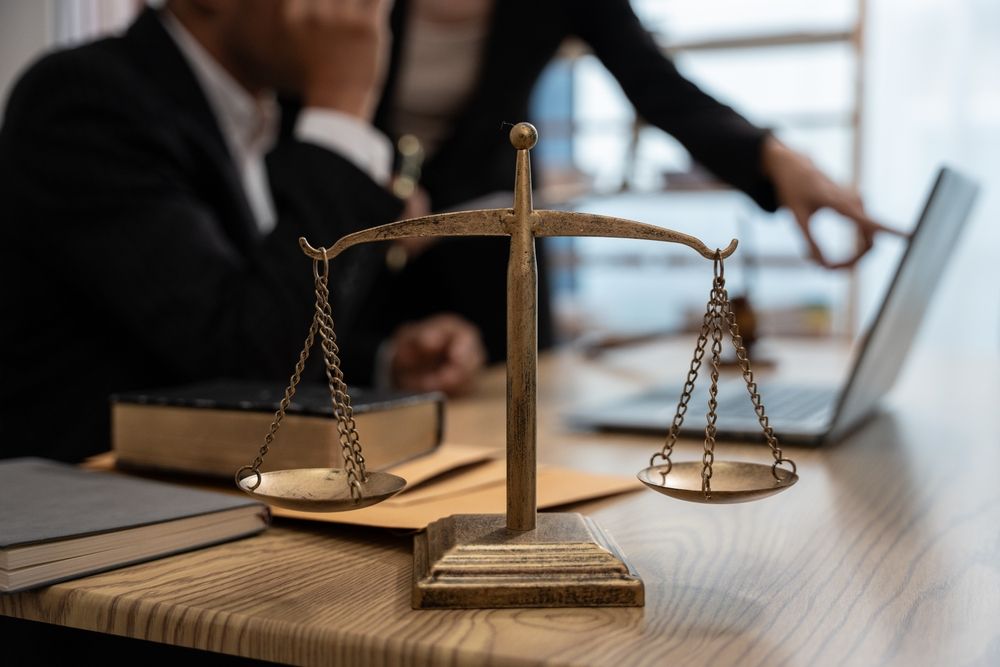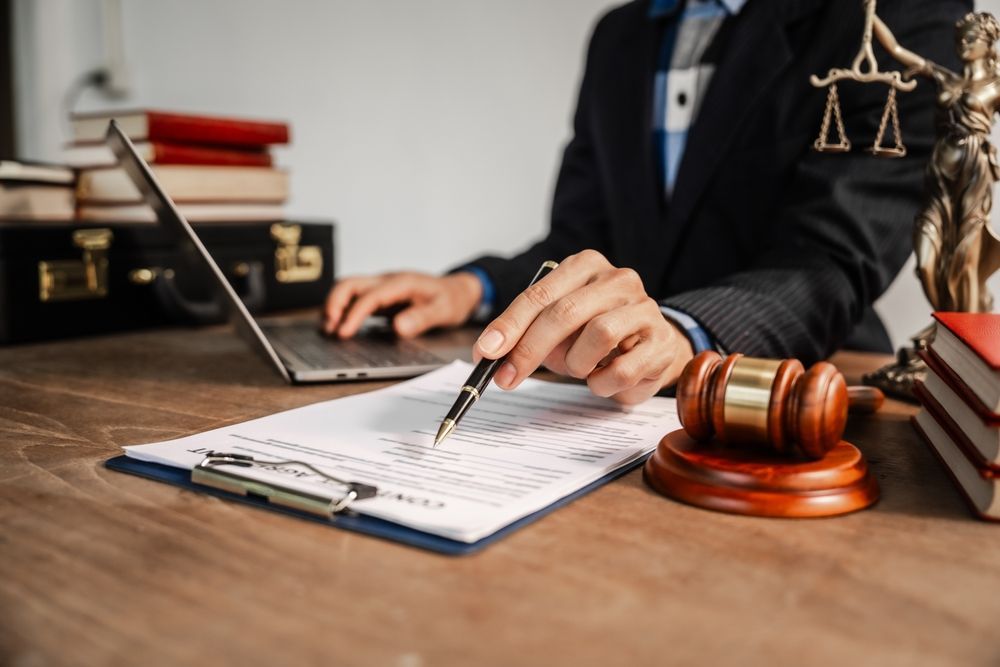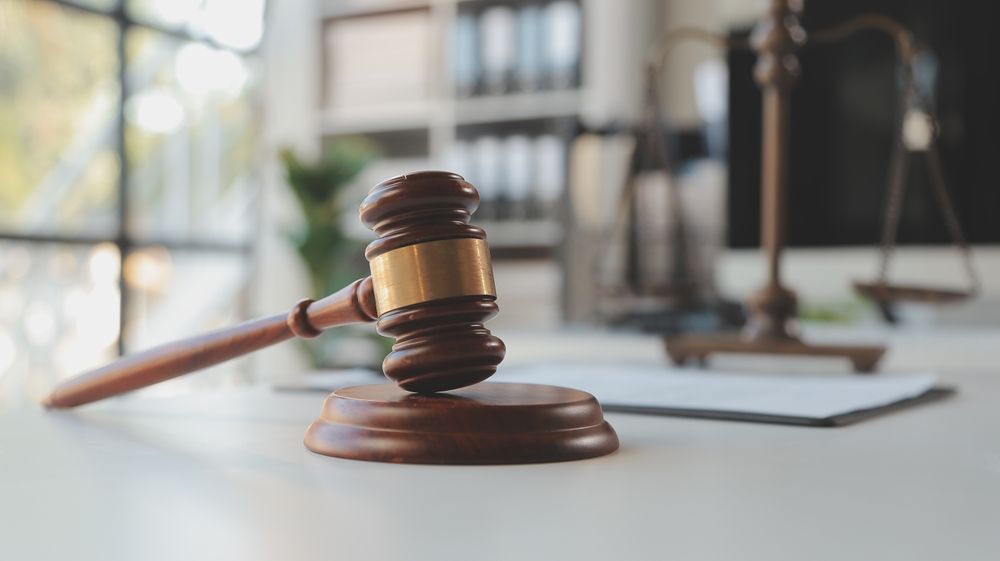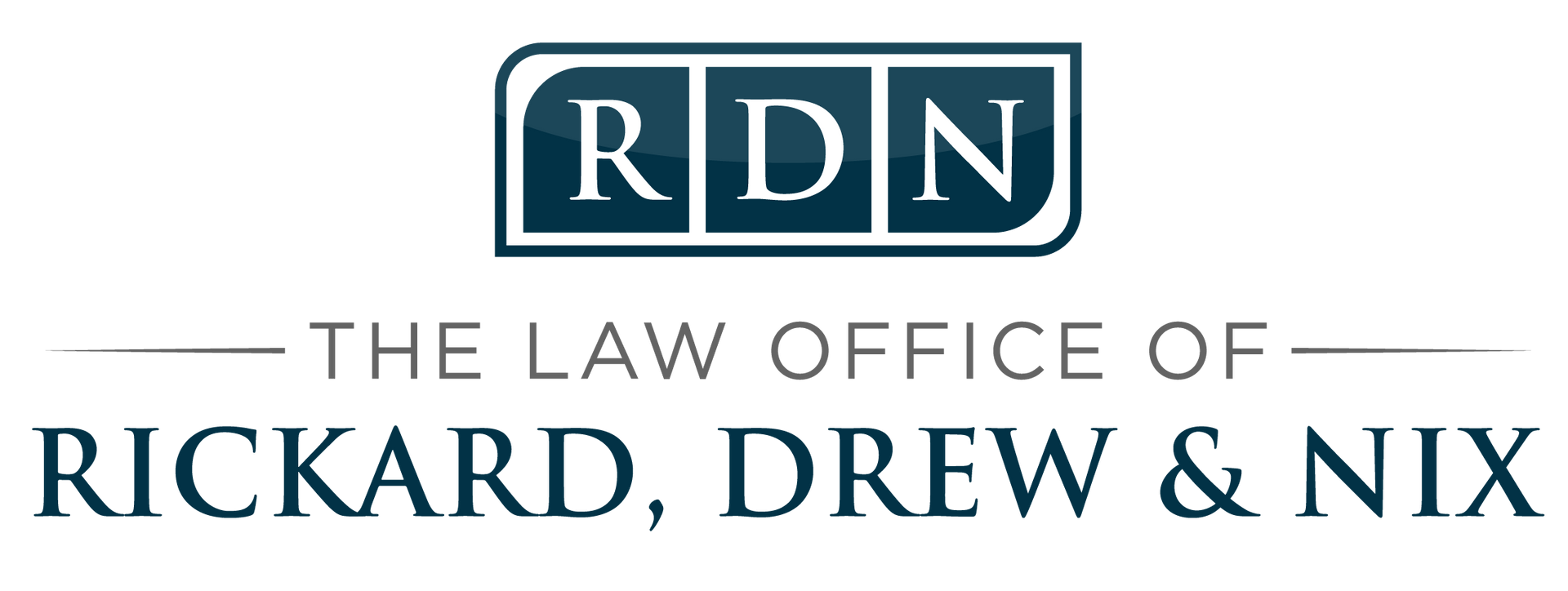By Jessica Nix
•
February 24, 2026
Car accident injuries are no joke. They happen suddenly, leave you in pain, in treatment, and often in debt. Getting the qualified legal help you need can mean getting back on track quickly or languishing in courtrooms for years, waiting on an inexperienced attorney to wrap things up. Since you only have one opportunity for compensation, your negotiation with insurers or representation in court must be top-tier. If you were hurt in an Atlanta car crash, choosing the right lawyer can determine how fully your medical bills, lost wages, and long-term recovery are covered. This guide explains the top five practical factors that matter when selecting an Atlanta car accident attorney , offering clear questions, evaluation checkpoints, and action steps you can use during a consultation. The Law Office of Rickard, Drew & Nix represents car accident and personal injury clients across the greater Atlanta metro area and focuses on aggressive pursuit of compensation, insurance-savvy negotiation, and no-upfront-fee representation; read on to see how those capabilities map to the five essential factors. You’ll learn why specialization and courtroom readiness matter, how to vet track record and communication standards, what contingency fees really mean, why local resources matter, and which questions to ask at your consultation. Why Is Experience and Specialization Crucial When Choosing an Atlanta Car Accident Lawyer? Experience and specialization mean an attorney focuses on car accidents and personal injury law, understands relevant evidence, and knows common defenses, which together improve the chances of fair compensation. Specialized attorneys recognize how different collision types change liability analysis, what medical documentation matters, and which expert witnesses to retain, which accelerates case development and strengthens negotiation positions. For someone comparing firms, specialization offers procedural fluency and repeatable strategies that general practitioners may lack, and this practical advantage often translates into more favorable settlement valuations. What Types of Car Accident Cases Should Your Lawyer Have Experience With? A qualified Atlanta car accident attorney should have experience handling a range of collisions, including rear-end, T-bone, head-on, multi-vehicle, hit-and-run, pedestrian and bicycle strikes, as well as catastrophic injury cases, because each requires distinct proof strategies and expert testimony. Rear-end claims may hinge on electronic event data recorder (EDR) downloads and clear sequence-of-impact analysis, while T-bone or intersection collisions often require witness statements and traffic-signal data to establish fault. Catastrophic injury cases require long-term medical projections, vocational experts, and life-care planning to value future needs. A lawyer familiar with these components can assemble evidence more efficiently and present a more persuasive damages model. Understanding these requirements helps you choose an attorney who will match investigative resources to your accident type and prioritize the right evidence early on. How Does Specialization in Personal Injury Law Benefit Your Case? Specialization concentrates experience in damage valuation, medical liaison coordination, and negotiation techniques tailored to injury claims, so specialized lawyers typically secure better results for similar fact patterns. A specialist knows which medical providers to engage for independent evaluations, how to document non-economic losses like pain and suffering, and which experts (orthopedists, neurologists, reconstructors) will credibly support causation. That institutional knowledge reduces guesswork, shortens discovery timelines, and helps produce settlement demand packages that insurance adjusters take seriously. Because specialization also produces familiarity with local settlement ranges, it enables attorneys to set realistic expectations and avoid unnecessary delays or lowball offers. How Does Former Insurance Company Experience Give Lawyers an Advantage? Attorneys who previously worked for insurance companies bring insider knowledge about adjuster priorities, common delay tactics, and lowball strategies, enabling them to counter offers more effectively. Such lawyers understand the documentation insurers weigh most heavily, medical chronology, lost-wage proof, and liability evidence, and can structure demands to address those priorities directly. That experience also helps anticipate tactic patterns (requests for recorded statements, repeated medical record demands) and neutralize them with targeted responses that preserve client leverage. Recognizing how adjusters evaluate claims gives these attorneys an edge in negotiation without sacrificing readiness to litigate when necessary. How Can You Evaluate a Car Accident Lawyer’s Track Record and Success in Atlanta? Evaluating track record means looking beyond headline verdicts to representative settlements, frequency of trial, and transparency about outcomes so you can judge fit for your specific facts. The best assessments combine objective metrics, such as settlement ranges for comparable injuries and the attorney’s trial rate, with subjective signals from detailed client reviews and anonymized case summaries. Ask for representative results that mirror your accident type and for explanations of why certain outcomes were achieved; transparency about variables builds realistic expectations. Different case types produce different outcome ranges, and context matters more than single headline numbers. The table below compares anonymized case categories, typical outcome forms, and factors that commonly influence results to help you interpret representative results when lawyers share them. What Settlement and Jury Verdict Results Should You Look For? When reviewing settlements and verdicts, look for representative consistency, multiple outcomes in similar case types, rather than rare, outlier verdicts that may not reflect typical practice. Important metrics include settlement ranges for injuries like soft-tissue versus surgical cases, whether recoveries covered future care and lost earnings, and the firm’s propensity to take cases to trial when insurers refuse reasonable offers. Ask how often the lawyer prepares for trial, even when settling, and what percentage of cases settle pre-filing versus after litigation begins. Understanding these patterns lets you infer whether a lawyer negotiates aggressively and prepares thoroughly for litigation if needed. How Do Client Reviews and Testimonials Reflect Lawyer Performance? Client reviews become meaningful when they provide consistent signals about communication, process clarity, and outcome satisfaction rather than just generic praise. Prioritize recent, detailed reviews that describe responsiveness, explanation of options, and timeliness of updates; those details correlate with strong client service and case management. Cross-check reviews across platforms and ask the firm for anonymized case summaries that align with testimonial claims to validate patterns. Reading reviews with a focus on process indicators helps you predict how the attorney will handle your case on a day-to-day basis. Why Is Transparency About Past Case Outcomes Important? Transparency about past outcomes demonstrates a firm’s willingness to educate prospective clients, set realistic expectations, and explain the variables that affect recovery amounts. Transparent firms provide anonymized case summaries, breakdowns of cost deductions, and clear disclaimers stating that past results are not guarantees, which helps build trust during the consultation. Request representative examples that match your injury type and ask how evidence or client behavior influenced those outcomes to assess the applicability to your situation. That level of openness helps you compare firms on substance rather than marketing claims, setting the stage for a more informed hiring decision. What Role Does Clear Communication and Client Service Play in Choosing a Car Accident Attorney? Clear communication and client service directly impact the speed of evidence gathering, the accuracy of medical documentation, and the client’s stress level during a case, all of which influence settlement timing and value. Clients should expect timely responses, structured updates, and clear explanations of options and likely timelines, because delays or confusion can weaken negotiations or impair medical consistency. High-quality service also includes accessible channels for urgent matters and documented notes of key decisions; these practices reduce misunderstandings and improve case coordination. How Responsive Should Your Atlanta Car Accident Lawyer Be? Reasonable responsiveness includes prompt initial contact, defined response times for routine questions, and immediate triage for urgent developments, with clear caveats for weekends or discovery. A practical benchmark is to have initial contact within one business day and provide substantive updates at agreed-upon intervals or when major milestones occur, which keeps clients informed and timelines on track. Consistent updates encourage timely medical follow-through and prevent lapses that insurers could exploit, while documented communications preserve a record of instructions and decisions. Ask potential attorneys how they define response times and what escalation processes exist if you do not receive an update. What Communication Channels Should Your Lawyer Offer? Effective firms provide multiple channels, including phone, email, and a secure client portal, for different types of updates and documentation. This allows urgent matters to be handled quickly while preserving a written record for routine matters. Phone calls are best for urgent strategy conversations, while email works for documentation and confirmations. Client portals centralize files, medical records, and billing notes for easy access. Accessibility considerations, such as accommodations for individuals with hearing or vision impairments, are also part of responsible client service and should be discussed during the intake process. Confirm your chosen attorney records key decisions in writing to avoid ambiguity and to maintain continuity across team members. How Does Transparent Communication Impact Your Case Progress? Transparent communication accelerates evidence collection, prompts medical follow-ups, creates consistent treatment records, and facilitates the timely completion of release forms, which strengthens settlement demands and demonstrates organizational efficiency to adjusters. When clients understand likely timelines and decision points, they make informed choices about settlement offers, medical care, and litigation risk, which prevents surprise setbacks. Clear timelines help align expectations about when offers may arrive and what additional documentation might increase settlement value. How Do Contingency Fees and Transparent Payment Structures Affect Your Choice of Lawyer? Contingency fee arrangements mean you typically pay no upfront attorney fees; the lawyer is paid a percentage of any recovery, which aligns incentives and reduces financial barriers to legal representation. Understanding how contingency works, who pays the costs, when fees are deducted, and typical percentage ranges is essential so you can compare offers from different firms on an apples-to-apples basis. Beyond the fee percentage, ask how third-party costs (such as experts, investigations, and filing fees) are advanced and whether the firm deducts those costs if there is no recovery. Below is a plain-language table explaining common fee types, who pays, timing, and typical ranges to clarify financial expectations. Fee arrangements determine your net recovery and should be clearly documented before signing. What Is a Contingency Fee and How Does It Work in Atlanta Car Accident Cases? A contingency fee is a payment model in which the attorney’s fee is a percentage of the recovery. This means clients do not pay attorney fees unless the case is successful, thereby increasing access to representation for injured individuals. Contingency percentages vary by case and are typically negotiated in a written agreement; the net recovery is calculated as your settlement minus attorney fees and any case costs advanced. As a practical example, if a case settles for a specific amount, the fee percentage is applied to the gross recovery, and expenses are then allocated as described in the agreement, which affects the final amount you receive. The Law Office of Rickard, Drew & Nix operates on a contingency fee basis. We offer a complimentary consultation to discuss case specifics and fee arrangements, allowing prospective clients to evaluate representation with no upfront commitment. Are There Any Upfront Costs or Hidden Fees to Expect? Although attorneys on contingency typically require no upfront attorney fee, clients may be responsible for third-party costs if the fee agreement specifies cost allocation; these commonly include expert witness fees, litigation filing fees, and investigative expenses. Reputable firms explain whether they advance these costs or expect reimbursement only from recovery, and they document which expenses will be deducted if there is a successful outcome. To avoid surprises, ask for a written fee and cost agreement that itemizes potential expenses and explains how costs are recovered in both settlement and verdict scenarios. Clear terms protect you from unexpected deductions and help compare firms on net value rather than headline percentages. How Does a Contingency Fee Model Benefit Injury Victims? Contingency aligns attorney incentives with the client’s recovery and removes financial barriers that might otherwise prevent injured people from securing experienced counsel, which often improves overall outcomes. Because attorneys are compensated from recovery, they have an incentive to invest in the necessary experts and discovery that increase case value, balancing cost with likely return. This model also encourages early triage of weak claims to avoid needless expense and concentrates resources on cases with demonstrable merit. The result is broader access to justice and an advocacy model where the lawyer’s success depends directly on the client's recovery. Why Is Local Atlanta Expertise and Firm Resources Important When Hiring a Car Accident Lawyer? Local expertise matters because familiarity with Atlanta's courts, judges, local medical providers, and claims adjusters shortens investigative timelines and enhances courtroom and negotiation strategies. Local firms are familiar with scheduling norms, clerk procedures, and which judges favor particular motion practices, enabling more predictable litigation planning and fewer avoidable delays. Additionally, firm resources, investigators, access to medical experts, accident reconstruction technology, and experienced support staff directly affect the ability to develop strong liability and damages cases. How Does Familiarity with Atlanta Courts and Georgia Laws Help Your Case? A lawyer familiar with Atlanta courts understands filing quirks, local scheduling practices, and judge preferences for motions and trial management, which reduces procedural surprises and avoids deadline pitfalls. Knowledge of Georgia civil procedure and statutes, such as the two-year statute of limitations (O.C.G.A. § 9-3-33) and modified comparative negligence rules, helps lawyers plan filings and preservation steps promptly. This familiarity also speeds identification of local expert witnesses and medical providers whose opinions carry credibility in negotiations and at trial. Understanding these local mechanics allows a lawyer to strategically sequence evidence and motions to maintain momentum in their claim. What Firm Resources Should You Expect for Handling Car Accident Claims? Expect a capable firm to provide experienced paralegals, investigators, access to medical and vocational experts, and litigation support, such as reconstruction software or demonstrative exhibits for trial, as these resources can materially increase claim value. Investigators collect scene measurements, photos, and witness statements while medical experts translate clinical findings into durable life-care projections; both improve the persuasiveness of demand packages. Technology, digital reconstructions, timeline visualizations, and organized medical chronologies help juries and adjusters understand the trajectory and severity of injuries. How Does Local Reputation Influence Lawyer Effectiveness? A firm’s local reputation affects insurer behavior because adjusters and defense counsel factor in perceived trial readiness and credibility when deciding whether to make fair early offers. A reputation for thorough preparation and a willingness to try cases often leads insurers to settle more quickly and at higher amounts to avoid the costs and uncertainties of trial. Local referral networks with trusted medical providers and experts also streamline care coordination and evidence gathering, improving overall case efficiency. What Are the Key Questions to Ask When Choosing a Car Accident Lawyer in Atlanta? A focused checklist helps you cover credentials, timing, and negotiation approach during the initial consultation, so you leave with a clear sense of fit and next steps. Important consultation questions to ask: Are you licensed and in good standing with the Georgia State Bar? Verify license and disciplinary record independently. Do you have representative results for cases similar to mine? Ask for anonymized summaries with context. What is your contingency fee, and how are costs handled? Request a written explanation of net recovery mechanics. Do you prepare cases for trial, and how often do you take cases to court? Trial readiness signals negotiation leverage. What is the statute of limitations, and are there exceptions that could apply? Early action preserves evidence and claims. After using the checklist, compare answers across firms and weigh clarity, specificity, and willingness to provide written summaries as positive signals. Clear, direct answers indicate a firm that understands both the legal mechanics and client priorities. How Do You Verify a Lawyer’s Credentials and Bar Membership? Verify a lawyer’s license and disciplinary record via the Georgia State Bar’s public resources and request to see professional bios that list trial experience and relevant case types; credentials alone do not guarantee fit but are a necessary baseline. Look for trial experience, publications, or speaking engagements in personal injury topics as additional signals of substantive involvement in the field. If an attorney cites specialty experience (e.g., catastrophic injuries or UM/UIM claims), ask for anonymized examples that demonstrate consistent handling of those matters. Confirming credentials and corroborating them with case summaries and client references helps you distinguish between marketing and genuine expertise. What Should You Know About the Statute of Limitations for Car Accident Claims in Georgia? Georgia’s general deadline for personal injury lawsuits is two years from the date of the injury (O.C.G.A. § 9-3-33), which means prompt action is essential to preserve your legal rights and physical evidence. Some exceptions can extend or toll that deadline in narrow circumstances, so it is important to consult an attorney quickly to determine whether any exceptions might apply to your facts. Early consultation also helps preserve witness statements, scene data, and medical documentation that strengthen claims. Failing to act within the statute of limitations can permanently bar recovery, making timing one of the most practical deciding factors when choosing counsel. How Can You Assess a Lawyer’s Negotiation Skills with Insurance Companies? Assess negotiation skills by asking for examples of recent negotiations, whether the attorney prepared cases for trial, and how they respond to lowball offers. Look for answers that emphasize evidence-driven strategy rather than purely incremental concessions. Probe how the lawyer uses experts, demonstratives, and demand package structure to justify valuation and how they escalate when insurers stall. Behavioral signals, willingness to explain strategy, providing timelines, and discussing litigation thresholds indicate a negotiator who balances settlement efficiency with readiness to litigate. Responses that focus on building a persuasive record rather than quick settlements usually indicate a stronger negotiation posture. How Can Client Testimonials and Case Results Help You Choose the Right Atlanta Car Accident Lawyer? Client testimonials and case results are tools to validate claims about communication, process, and outcomes when interpreted with care and cross-verification. Look for testimonials that describe timing, responsiveness, and clarity, and ask for representative case outcomes that mirror your injury type and expected damages. Use multiple review platforms and state bar listings to triangulate credibility, and request anonymized case summaries that explain how results were achieved. The next subsections outline which results are most informative, how testimonials reveal service quality, and where to find verified reviews. What Types of Case Results Demonstrate Lawyer Effectiveness? Results that are most informative are those that are consistent across similar case types, settlements, or verdicts, repeatedly addressing medical bills, lost income, and non-economic losses in cases with comparable injuries. A pattern of recoveries for both economic and non-economic damages in similar fact scenarios is more valuable than a single outlier verdict. Ask for representative case summaries that include context such as injury severity, liability clarity, and whether a trial was necessary, so you can judge applicability to your situation. Consistency and context matter more than absolute dollar amounts when comparing firms. How Do Testimonials Reflect Client Satisfaction and Lawyer Communication? Testimonial content is most useful when it reports on process details, how often the client received updates, whether explanations were clear, and how the firm handled deadlines and settlements, rather than only praising outcomes. Descriptions of timely responses during critical phases, how medical bills were managed, and whether the client felt prepared for decisions are especially telling. Cross-reference testimonials with case summaries to see whether promised processes match documented outcomes. This alignment between testimonials and factual results helps confirm a firm’s operational reliability. Where Can You Find Verified Reviews for Atlanta Car Accident Lawyers? Use a combination of platforms to verify reviews and credentials, state bar directories for licensing, established legal directories for peer recognition, and public review platforms for client feedback, while noting verification caveats such as anonymous posts and dated entries. Cross-check dates and specific details in reviews to detect patterns of service quality or recurring issues, and prioritize sources that allow you to see a reviewer’s timeline and details. Combining these sources provides a more comprehensive picture than any single platform and reduces reliance on unverified marketing claims. Final Thoughts For prospective clients ready to take the next step, the Law Office of Rickard, Drew & Nix offers a free initial consultation to review facts and explain contingency fee arrangements so you can compare options with no upfront cost. Their Atlanta focus and local courtroom familiarity support practical strategy discussions during that consultation, helping you decide quickly whether to retain counsel. For a thorough review of the evidence and an honest assessment of the likely outcomes, contact us to request a consultation to discuss next steps. The firm’s free consultation and contingency model are designed to let injured people evaluate representation without financial barriers, so you can focus on recovery while the legal team handles the claim.





